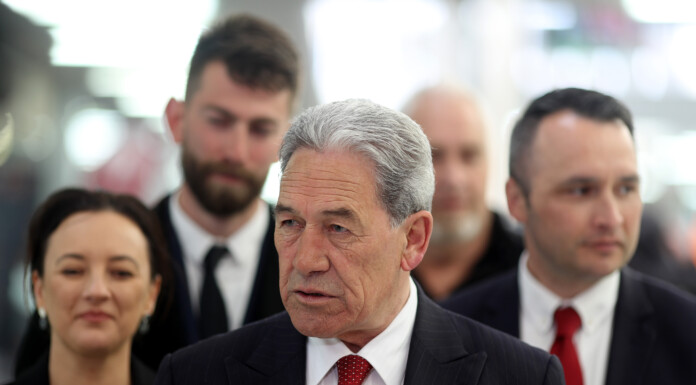Courtesy of NZ First leader Winston Peters, the issue of covid-19 vaccine mandates and injuries has been injected into the election campaign.
At a press conference on Saturday, Peters promised to compensate people who lost their jobs due to covid-19 mandates, as well as those who were injured by the vaccine – a policy he estimated could cost hundreds of millions of dollars.
That promise prompted a response from Prime Minister Chris Hipkins the following day.
Although he didn’t explicitly acknowledge any New Zealanders have been injured by the vaccine, he did appear to tacitly accept some have been when he stated, “There is a process for people who are injured in a medical procedure, there’s already processes in place for dealing with that.”
[How many Kiwis may have had serious enough adverse reactions to qualify for ACC support is unclear, however, not least because Medsafe doesn’t appear to have published a safety report since December 14 last year, at which point the cumulative tally of AEFI – or adverse event following immunization – reports was 61,141 “non-serious” and 3688 “serious”.]
Hipkins was more emphatic on the proposal of compensation for those who lost their jobs due to declining “the jab”.
“In terms of the vaccine mandates, I acknowledge that it was a challenging time for people, but they ultimately made their own choices,” he said.
“There was no compulsory vaccination, people made their own choices.”
In asserting this, Hipkins appears to be following the lead of other Western leaders who enacted similar policies.
Canada’s prime minister Justin Trudeau, for example, recently insisted no Canadians were “forced” to get vaccinated, just “incentivised” to do so, which does allow him at least some wriggle room – if he means no one was physically held down while “the jab” was administered against their will.
Hipkins seems to be seeking the same semantic shelter, and no doubt there are plenty of New Zealanders who absolutely agree that the many workers “mandated” to get vaccinated or lose their jobs had a [Hobson’s] “choice”.
Those who do take this position are presumably comfortable with the coercion involved in the “choice” between being able to provide food and shelter for their families and submitting to a medical procedure that carried some risk of serious injury, despite the government’s blanket assurance it was “safe”.
It’s a position that’s no doubt buttressed by faith in the government’s other assurance that the covid-19 vaccine was “effective” in preventing recipients from catching the virus and transmitting it to others – although that’s now akin to religious belief, given all the real world evidence and peer-reviewed studies to the contrary.
It should of course be noted Te Pāti Māori was the only parliamentary party to oppose vaccine mandates, and even Peters [although out of Parliament at the time] advocated for “no-jab means no dole and no parole” in October 2021.
Whether the NZ First leader subsequently had a “come to Jesus” moment regarding mandates or has cynically calculated at least five per cent of voters would come to him if he took up the cause, it is good that coercive covid policies are finally on the agenda, given they represent a troubling precedent for government intrusion in citizens’ lives that many appear determined to ignore.


